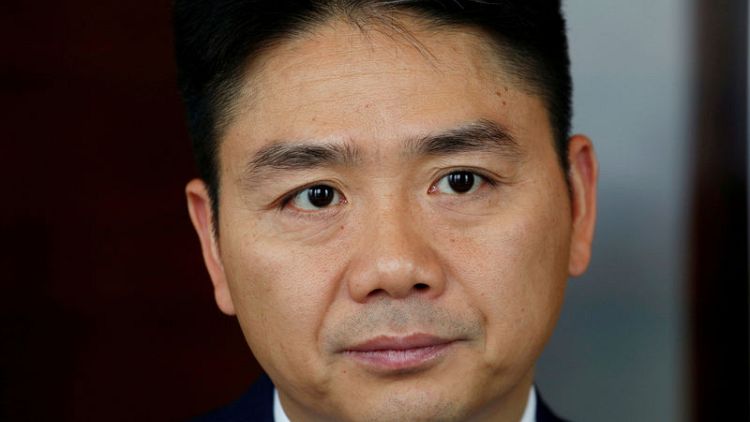SHANGHAI (Reuters) - Hundreds of people have added their names to an online petition in support of a University of Minnesota student who said she was raped last August by Richard Liu, the chief executive officer of China's e-commerce retailer JD.com Inc.
The student, Liu Jingyao, from China, filed a civil lawsuit against JD's CEO in a Minneapolis court on Tuesday, nearly four months after prosecutors declined to press criminal charges against him.
The law suit identified the student for the first time. The two Lius are not related.
Richard Liu, through his lawyers, maintained his innocence throughout the law enforcement investigation, which ended in December. The company did not immediately respond to an email request for comment.
It was unclear who launched the petition, which carried the hashtag #HereForJingyao, although signatories included Chinese students at foreign universities as well as in China. On Saturday, it was gathering momentum on the social media platform WeChat, with more than 500 names attached.
"To Liu Jingyao: You are not alone. We believe in survivors, we believe in your bravery and honesty, we will always stand with you. We must join hands and march together in the face of the challenge of a culture of blaming the victims of rape," the petition said.
A Chinese-language translation of the indictment was also circulating online.
Liu Jingyao first accused Richard Liu of rape in August when he was visiting the University of Minnesota to attend a programme directed at executives from China.
Liu, 46, who started JD.com as a humble electronics stall and expanded it into an e-commerce company with 2018 net revenues of $67 billion, was arrested on Aug. 31 but released without charge about 17 hours later.
A fledgling #MeToo-style movement in support of women's rights has been slow to gain wide traction in China, where issues like sexual assault have traditionally been brushed under the carpet.
China's ruling Communist Party, wary about grassroots organising, has also in recent months put pressure on activists focused on issues like sexual assault on campuses and workers' rights.
(Reporting by John Ruwitch and Shu Zhang; Editing by Nick Macfie)
